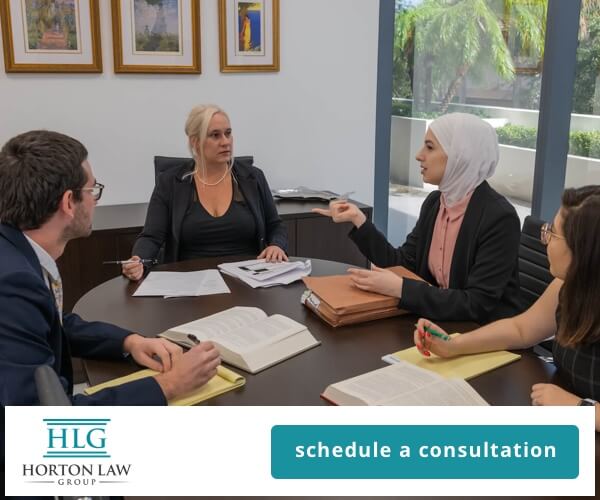
When you do a search on Google to learn what rights a landlord has, you will be surprised to find out that most search results point you toward tenants’ rights, and renters’ rights and, of course, to the Florida Landlord and Tenant Code which can be found at Chapter 83 of the Florida Statues. However, there are not too many sites that provided a hit list for the rights of a landlord. This is because landlords’ rights are limited and can only be found in two places: Chapter 83 and in the lease that the landlord drafts and presents to the tenant for execution.
We want to be clear that even though a landlord can dictate and narrowly tailor their rights to their particular properties and/or leases, landlords cannot eliminate or remove their statutorily obligated duties they owe to a tenant under Florida law. So, LANDLORDS BEWARE, you may think you have crafted a rock-solid lease that gives you every benefit you want and provides no protection to the tenants, but there is a good chance, should litigation arise, a portion, if not all, of the lease may be deemed void by a Court of law.
Thus, the best “right,” – the best “protection,” that a landlord can have when drafting a lease, negotiating lease terms, engaging in breach of lease, eviction or unlawful detailer litigation against a tenant or a squatter is to have quality and aggressive legal counsel on your side.
At the Horton Law Group, we treat our clients like family. We are actively involved in the community, and we are well respected in the courtroom. We maintain professional relationships with our clients long after their cases are resolved. We are confident that you will be happy with your decision to hire the Horton Law Group to represent you during this difficult time. We are aggressive. We provide sound legal advice, and we are ready to fight for your rights.
Please contact the Horton Law Group, P.A. at 561-299-0018 or email legalsupport@hortonlawgroup.com to schedule a free 30-minute consultation with a qualified member from our team.
The top mistakes made by a residential landlord:
No 1. Not properly executing the lease. Under Florida law, verbal agreements, “handshakes,” are valid but are STRONGLY discouraged because litigation involving verbal agreements turns into “he said” v. “she said” cases and usually at the end of the day, no one is happy with the outcome in Court…the attorneys at the Horton Law Group recommend having a clear and concise written lease agreement that is executed in compliance with Florida Law. A lease is deemed to be fully executed upon signing by both parties. In the past, Fla. Stat. § 689.01 required that if a lease is more than one year, the landlord’s execution of the lease must be signed in the presence of two subscribing witnesses. Effective as of July 1, 2020, the witness requirement no longer applies to a lease of real property. Notarization is not required. Although, witness signatures and notarization are highly recommended.
No 2. Failure to return the tenant’s security deposit. The landlord has 15 days to return the security deposit. However, if the landlord intends to use the tenant’s security towards fixing damage to the property caused by the tenant, then the landlord has 30 days to notify the tenant in writing. Strict compliance with the law is required. If the landlord notifies the tenant of his/her intent to withhold the security deposit, the tenant has 15 days to object, or is forever barred. If the landlord keeps the security deposit without strictly complying with the notice requirements, he/she will be subject to a lawsuit for failure to restore the security deposit and will be liable for damages and attorney fees. This is a HUGE area of litigation. Do not fall victim.
No. 3. Renting the property to a person under the age of 18. In Florida, a person under the age of 18 cannot enter a contract. Thus, if a landlord enters a contract with a person under the age of 18, the contract is voidable by either party at either time. Meaning, the tenant can just stop paying. Thereafter, you will need to retain counsel to proceed with eviction proceedings to have the tenant removed from the premises.
No. 4. The landlord is required to comply with applicable building, housing, and health codes. Landlords have statutory and contractual duties when it comes to renting both, residential and commercial properties. Sometimes, landlords attempt to redefine their duties by eliminating all of their duties and obligations in the lease, landlords cannot eliminate their statutory duties in the lease under Florida law.
No. 5. Landlords cannot access the rented property whenever they choose. Rather a landlord must request access and/or provide reasonable notice before entering the property unless there is an emergency. This issue usually arises when a landlord lists the property for sale and wants to show the property, but the tenant does not want to be disturbed. If selling the property is an option, provisions for this should be negotiated in the terms of the lease.
No. 6. Landlords may not prohibit waterbeds. Waterbed? What is a waterbed you ask? They are beds made of water, extremely popular in the 80s! Under Florida law, a landlord cannot prevent you from having one, even if you are renting a unit not on the ground level.
No. 7. Self-Help. Landlords cannot engage in self-help. The proper, legal channels must be utilized. Not receiving a rent payment can be stressful. Tenants often do not realize that their landlords need the rent payment as much as the tenant needs their paycheck. However, it is never okay to retaliate against a tenant for failure to pay rent.
No. 8. Landlords cannot refuse to make reasonable repairs. Landlords are required to provide the premises fit for habitable use. If something breaks, the landlord is usually required to fix it. This is where the terms of the lease are key. Provisions should specify who is responsible for what and how long said person must make the repair. A Landlord’s refusal to make repairs to the rental property may amount to breach of lease and give the tenant grounds to terminate the lease, without having to pay further rent. So BE CAREFUL.
No 9. Failing to Contact the Horton Law Group to Represent You. At the Horton Law Group, we treat our clients like family. We are actively involved in the community, and we are well respected in the courtroom. We maintain professional relationships with our clients long after their cases are resolved. We are confident that you will be happy with your decision to hire the Horton Law Group to represent you during this difficult time. We are aggressive. We provide sound legal advice, and we are ready to fight for your rights. Please contact the Horton Law Group, P.A. at 561-299-0018 or email legalsupport@hortonlawgroup.com to schedule a free 30-minute consultation with a qualified member from our team.







